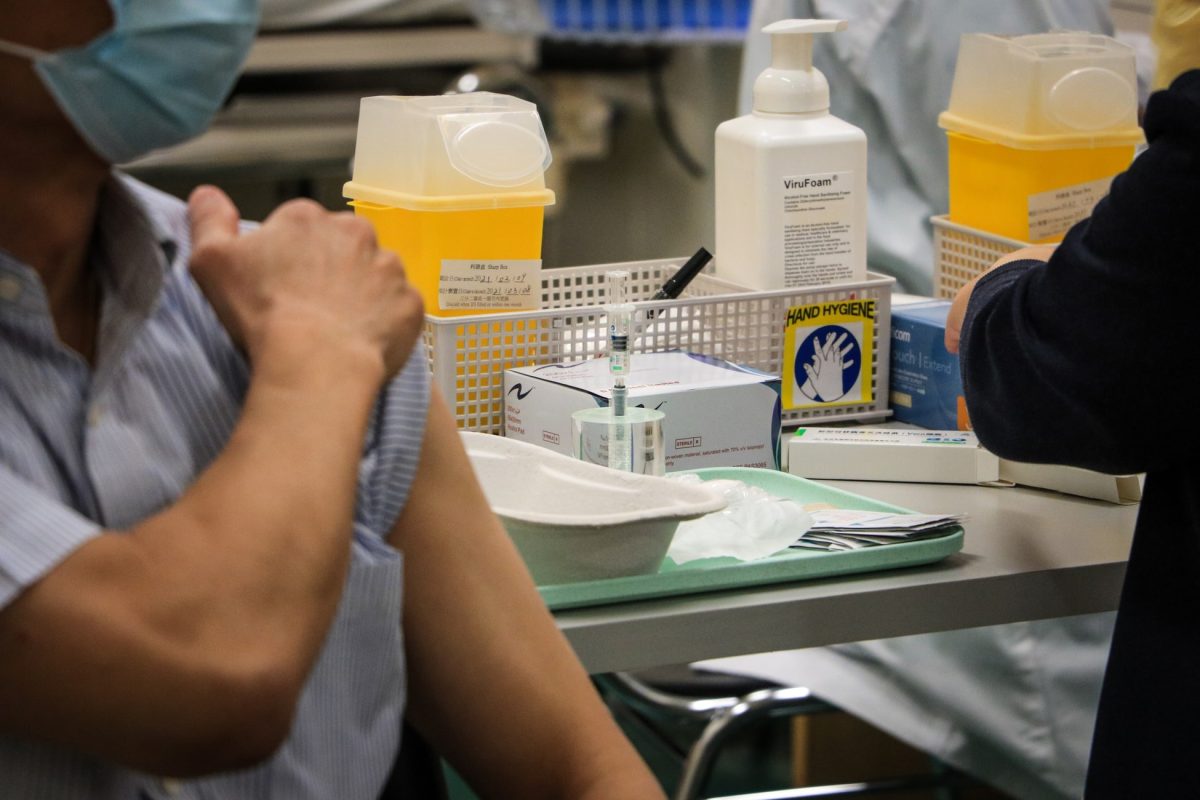After South Carolina Governor Henry McMaster’s Mar. 31 announcement that anyone over the age of 16 would be eligible to receive the COVID-19 vaccine, Furman University’s Health Sciences Department paired with Bon Secours St. Francis to host a vaccine clinic accessible to students.
Following the Apr. 17 clinic, The Paladin contacted Associate Professor of Health Sciences Dr. Meghan Slining, Associate Provost for Integrative Science Dr. John Wheeler, and Professor of Neuropsychiatry and Behavioral Sciences at the University of South Carolina School of Medicine Dr. Carmela Epright to discuss the clinic and address any questions that still remain.
Prior to the clinic, Dr. Carmela Epright was featured in the Apr. 14 “COVID-19 Vaccines: Facts or Fiction Forum” CLP (Cultural Life Program) forum that answered frequently asked questions about the vaccine and addressed any concerns students may have had. The CLP had 206 attendees.
After finalizing data from the vaccine clinic, Wheeler confirmed that 215 vaccines were distributed at the clinic.
After being contacted by several students and staff, Epright shared they “told me not only that it solidified their own commitment to receiving the vaccine, but that they planned to use the information that they learned to encourage others to be vaccinated.” Epright added that some of the people students and faculty shared this information with might not have been other students as many mentioned they would be speaking to their family members. But from the responses she received, it seems clear that the CLP did encourage some students who had previously been reluctant to receive it to acquire the vaccine through Furman’s clinic.
According to Epright, “No one in the state expected the Governor to permit every South Carolinian over the age of 16 to become eligible for vaccination as early as he did (Mar. 31).” She added that the expectation was that vaccines would not be available to students until sometime this summer. While there are students on campus over the summer, there would not be a sufficient number to justify such a clinic; so, the university had not made plans to host one. However, just over two weeks after the Governor made his announcement, “Furman’s administration, in concert with one of our health partners, Bon Secours St. Francis (BSSF), acted remarkably quickly to organize this clinic,” said Epright.
According to Wheeler, roughly 10% of the student population was vaccinated at the clinic event. Wheeler added that “The more students (and faculty/staff) who are vaccinated, the safer the Furman community will become in relation to the potential for large campus outbreaks, and ultimately the more quickly Furman will achieve its own degree of herd immunity.”
Based on the results from the survey data collected over the past two weeks and the students vaccinated Saturday, Wheeler estimated that well over 60% of the student body has now received at least one dose of the SARS-CoV-2 vaccine. Given this exceptional early response, it is not surprising that the levels of disease on campus have trended down in recent weeks (and continue to do so), even as the local community numbers have remained elevated.
As a result, Furman has been able to safely operate in the Purple Phase on campus for over 4 consecutive weeks, which includes significantly enhanced student activities and provides a much more enjoyable experience for everyone.
As more members of the student body and Furman community continue to be vaccinated, issues related to surveillance monitoring and quarantine likewise become less of a concern noted Wheeler, who added that this provides even greater incentive to complete the vaccination process.




































